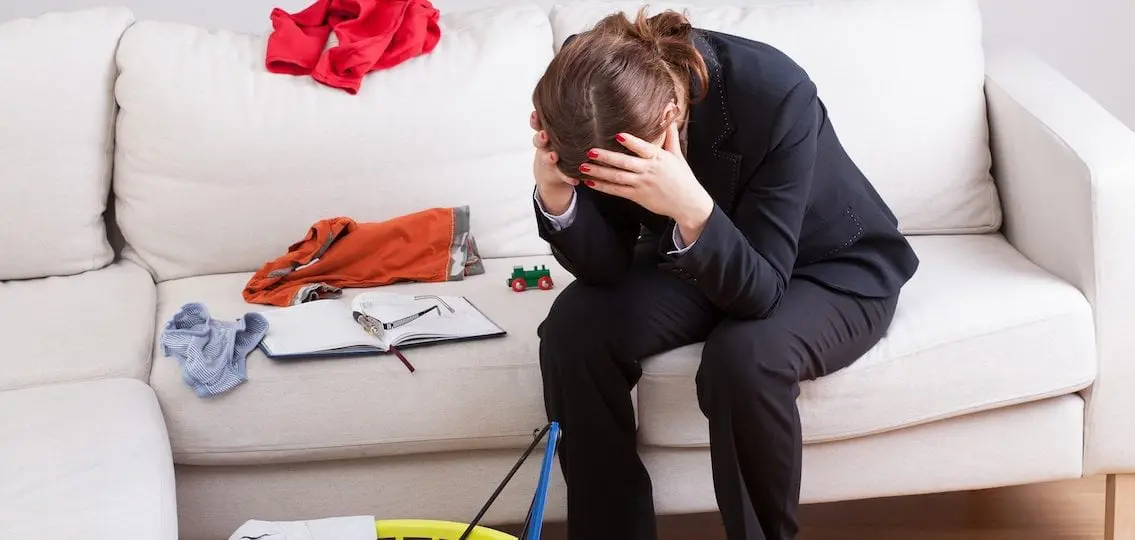I’m not sure that any parent (or child) is feeling much joy right now. Oh sure, there are happy moments here and there, but they tend to be overshadowed by the bigger worries brought on by a global pandemic.

No matter what age our kids are, and no matter how well they seem to be adapting and surviving right now, we parents are suffering. We feel sad for what our kids our missing. We worry constantly. And worst of all, we can’t fix it.
Sigh.
Unfortunately, curling up in bed until there is a vaccine is not an option, so what’s a parent to do?
The good(ish) news: Long before the pandemic, wise authors counseled parents about how to deal with parental burnout, that feeling of being overwhelmed by the demands of parenting and unable to sustain the energy required. Two of those writers are KJ Dell’Antonio, author of How to Be a Happier Parent, and Bruce Feiler, author of The Secrets of Happy Families. Guess what? A lot of what they had to say holds wisdom for the ages, even this terrible age of Covid-19.
As Dell’Antonio says, her book is not an instruction manual about how to have fun; no parent is looking to add more to the long list of things they have to do. “I don’t want to do anything else; I just want the things I’m doing to suck less.”
In the spirit of keeping things real, here is some helpful advice from both of their books that might just help us right now.
How to Avoid Parental Burnout
1. Don’t take on your children’s burdens.
Dell’Antonio recognizes that parents tend to absorb their kids’ emotions – the whole “you’re only as happy as your least happy child” philosophy. And while we will never stop worrying about them, we don’t do ourselves or our kids any favors if we absorb their pain.
Besides, when our kids are upset and they come to talk to us, they are looking for us to empathize with them. They need a safe place to dump out their emotions. This is not the time for us to get emotional with them; instead, we need to be calm and nonjudgmental and focus on listening and being empathetic.
2. Help our kids put things into perspective.
Admittedly, this advice is particularly hard to follow right now with school and sports and activities and special moments being canceled. But we can offer our kids one thing, the gift of perspective. We know there have been difficult times throughout history, and that good times will come again.
As Dell’Antonio says, “When your friend makes you miserable, you make cookies and you go on the next day. It’s going to be okay. We’re there to put these events and these tragedies that are large for a kid or a teenager into an adult perspective that says there’s another test, another girlfriend, another college.”
Now might be a great time for us to disclose some of our own struggles. Our kids need to know that we have survived the challenges that we have faced. Feiler recommends that we “talk about the skeletons, and share our own failures with our kids. It will instill in them confidence to surmount their own hurdles. I go out of my way to share with my kids when things go wrong for me.”
3. Be mindful about your family.
We’re spending an awful lot of time together, and if we can’t be in tune with the moods and needs of the people living with us, then we’re in trouble. Feiler points out that we have a long list of things that we work on – our jobs, our gardens, our bodies – and yet we often don’t take the same approach with our family relationships.
Whether it’s being respectful of each family member’s space – literal and figurative – collaborating on the grocery list, or performing a deliberate act of kindness, each family member needs to think beyond themselves and make the effort to understand what makes everyone tick. It feels good to think about others, and doing so will lift everyone’s spirits.
4. Be willing to change
Feiler includes 200 ideas in his book for families to try. “As a parent, I thought that I would make the rules, and it would work. It didn’t. Now, I know that trying a bunch of things reduces the pressure of perfection and the impossible expectation that I have to know, in advance, what to do in every situation.” Being willing to try new things also sends a good message to our children.
We’ve all been getting some good practice at being flexible and adapting to change. The more we can model being agile and flexible, and the less pressure we put on ourselves, the more our children will make efforts to do the same.
5. Give your kids a say.
Whether you hold weekly family meetings or join together to craft a family mission statement, kids should have a voice in what’s going on in the family. When everyone discusses what’s important to them, they are more likely to buy in to family norms.

Not only does having our kids participate help with burnout, it’s also good practice for life, says Feiler. “If you are bossing your kids around all the time, then you are not preparing them for the world. Parents must give their kids practice and more leeway to make their own decisions, have a voice in the conversation, and participate in running the group. That is the world they are going to enter.”





